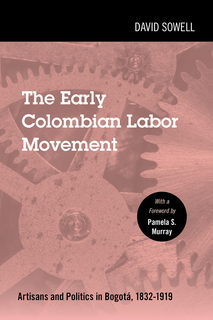The Early Colombian Labor Movement
Artisans and Politics in Bogota, 1832-1919
With a Foreword by Pamela S. Murray
In The Early Colombian Labor Movement, David Sowell traces the history of artisan labor organizations in Bogotá and examines long-term political activity of Colombian artisans in the century after independence. Relying on contemporary newspapers, political handouts, broadsides, and public petitions, Sowell analyzes the economic, social, and political history of the capital's artisan class, a middling social sector with very significant social and political strengths. This is the first study in English of nineteenth-century Latin American artisans and one of the few treatments that spans the whole of nineteenth-century Colombian history.
The rise and late decline of artisan class political activity coincided the Colombia's integration into the world market. Initially petitioning for tariff protection, Bogotá's craftsmen in time mobilized to address numerous issues, including industrial education, internal trade order, credit, and better health and educational facilities. Sowell traces the transformation of Colombia's economy and the (mainly negative) effects its evolution had on bogotano artisans. By the end of the nineteenth century, the artisans class was fragmented, their labor leadership replaced by workers associated with industrial production, transportation systems, and the production of coffee.
Table of Contents
Metadata
- isbn9781439918159
- publisherTemple University Press
- publisher placePhiladelphia, PA
- restrictionsCC-BY-NC-ND
- rightsCopyright © 1992 by Temple University—Of The Commonwealth System of Higher Education
First published 1992. Reissued 2018.


